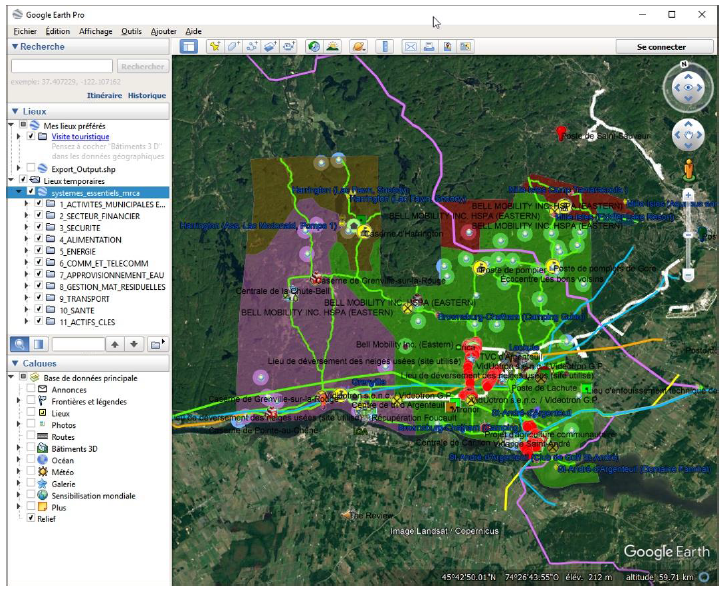A collaborative governance framework for risk assessment of critical systems in a changing climate
DOI:
https://doi.org/10.25071/mf54n561Abstract
The fall 2021 climate events in British Columbia raise questions about the resiliency of communities, but also of critical systems, with respect to the allocation of roads, telecommunications, drinking water, electricity, etc. The interdependence of these systems can quickly generate serious consequences for populations and socio-economic activities that local and regional authorities must manage. The diversity and number of stakeholders require these authorities to coordinate well. How then can the risks to which they are exposed be better assessed? How can we ensure coherence in the measures put in place in terms of planning, preparation and response?
The concepts and results presented in this article are the result of an action-research project carried out with the participation of numerous partners, particularly, but not exclusively, from municipal milieus in two regions of Quebec (Argenteuil and Brome-Missisquoi MRCs). This active collaboration with these regional partners has made it possible to propose an approach for implementing a collaborative governance framework combined with a risk assessment process. The tools and mechanisms associated with this approach will allow regional authorities to better understand the impact of climate change on the territory and to ensure consistency in the risk management actions of the various stakeholders.
References
Ansell, C., & Gash, A. (2007). Collaborative Governance in Theory and Practice. Journal of Public Administration Research and Theory, 18(4), 543-571.
Baril G., Hémond Y., Lépine C., Préval J., Robert B. et Therrien M.-C. (2020) “Démarche de gouvernance collaborative d’appréciation des risques des systèmes essentiels”. http://www.ouranos.ca/publication-scientifique/RapportTherrien2020.pdf
Chandler, S. M. (2019). Making Collaboratives Work: How Complex Organizational Partnerships Succeed. American Society for Public Administration: Series in Public Administration & Public Policy. New York, NY: Routledge, 2019. http://search.ebscohost.com/login.aspx?direct=true&db=nlebk&AN=1920378&site=ehost-live.
Emerson, K., Nabatchi, T., & Balogh, S. (2012). An integrative framework for collaborative governance. Journal of public administration research and theory, 22(1), 1-29.
Emerson, K., & Nabatchi, T. (2015). Collaborative governance regimes. Washington, D.C.: Georgetown University Press. (aleph_udq031017212).
Huxham, C. (2003). Theorizing collaboration practice. Public Management Review, 5(3), 401-423.
Madden, J. R. (2018). Inter-organizational collaboration by design. Routledge, 192 p.
Micouleau D. (2016). Potentiel de résilience d’une organisation – Application à des services municipaux. (Mémoire de maîtrise, Polytechnique Montréal, Montréal, Québec).
Ministère de la Sécurité publique du Québec (2014). Politique québécoise de Sécurité Civile. Bibliothèque et Archives nationales du Québec : Gouvernement du Québec. ISBN : 978-2-550-69471-7
Robert, B. et Morabito L. (2011). Reducing vulnerability of critical infrastructures – Methodological Manuel. Montreal: Presses Internationales de Polytechnique.
Robert B., Morabito L. et Debernard C. (2013). Simulation and anticipation of domino effects among critical infrastructures, Int. J. Critical Infrastructures, 9(4), 275–303.
Sécurité Publique Canada (2018a). Infrastructures essentielles. Tiré de https://www.securitepublique.gc.ca/cnt/ntnl-scrt/crtcl-nfrstrctr/index-fr.aspx
Sécurité Publique Canada (2018b). Stratégie nationale sur les infrastructures essentielles. Tiré de https://www.securitepublique.gc.ca/cnt/rsrcs/pblctns/srtg-crtcl-nfrstrctr/srtg-crtcl-nfrstrctr-fra.pdf

